The Revolutionizing Effects of NLP in Healthcare Industry
NLP can also improve patient communication, expedite administrative chores, support personalized treatment and predictive analytics, and improve other elements of healthcare outside data. This blog will discuss various natural language processing approaches, applications of NLP in healthcare, and how is NLP used in healthcare.
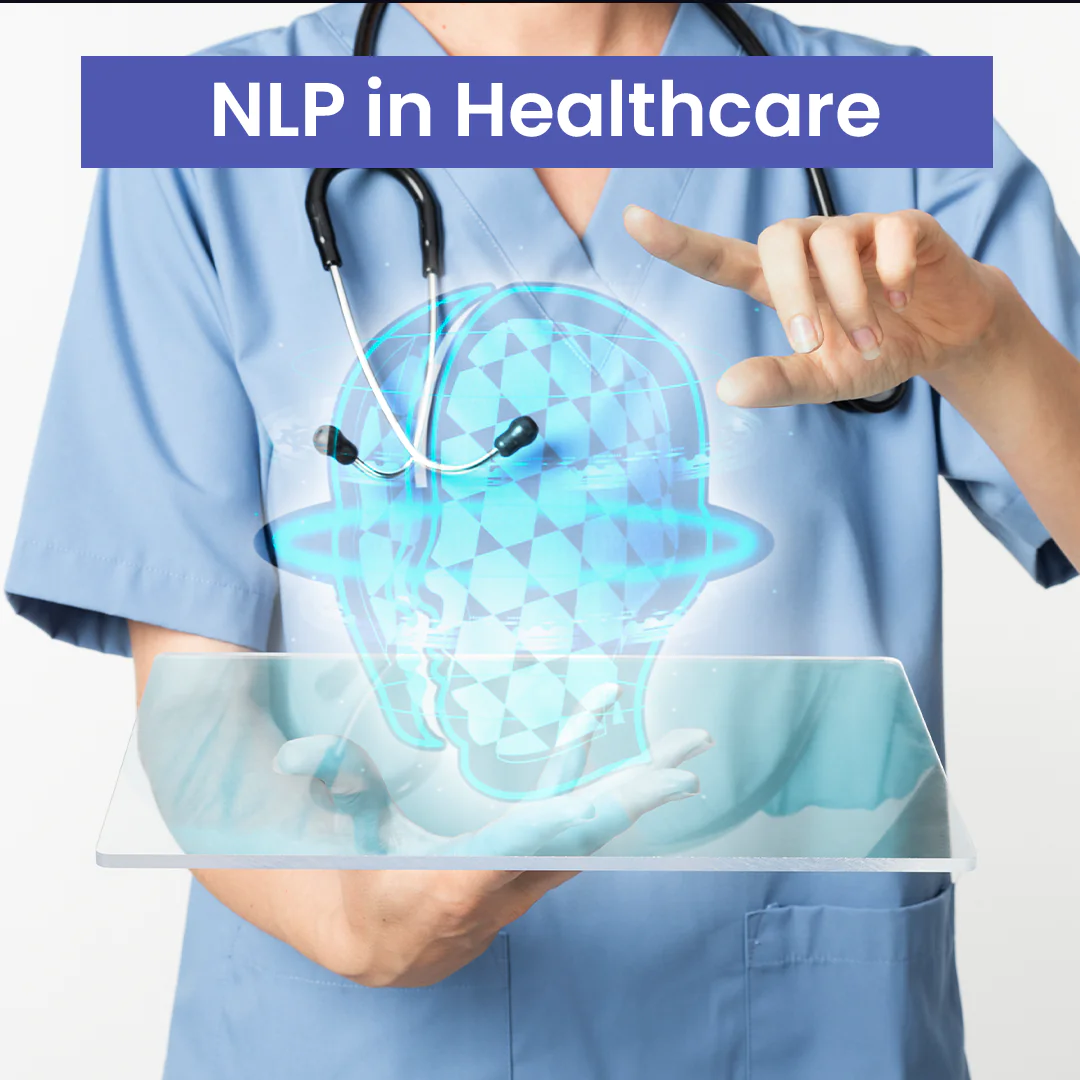
Overcome Administrative Bottlenecks by Automating Repetitive Tasks with Our Gen AI-Powered Healthcare Software Development Services
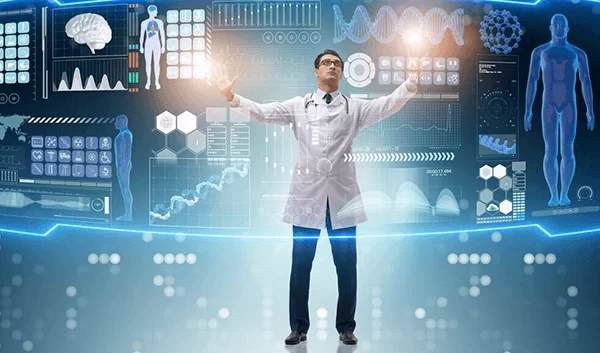
“NLP in Healthcare & Life sciences is used to interpret vast amounts of medical text, enhancing clinical decision-making, documentation, and patient care. NLP structures unorganized data from records, aiding diagnoses, and treatment suggestions. It identifies trends, supporting drug development and safety.”– Markets And Markets
Understanding NLP in Healthcare
The field of “natural language processing” within artificial intelligence allows computers to read, translate, and produce written or spoken human language. The ability of natural language processing to analyze unstructured data—such as clinical notes, patient comments, electronic health records, and medical literature—makes it incredibly valuable in the healthcare industry.
Advanced NLP approaches can help healthcare organizations find the hidden insights concealed in various data sources, which will help them make better decisions, optimize workflows, and enhance patient outcomes. NLP provides a flexible toolkit to address a range of healthcare concerns, from named entity recognition and connection extraction to optical character recognition (OCR).
The Role of NLP in Improving Patient Care
NLP has numerous benefits for both patients and medical professionals, including:
- Empowers Patients: Mobile apps with NLP capabilities can give users instant access to their medical records, enabling them to make well-informed decisions.
- Advanced Patient Monitoring & Predictive Analytics: Healthcare systems may now proactively monitor high-risk individuals and anticipate health complications because of NLP.
- Manages Massive Data Sets with Ease: NLP simplifies the handling of enormous volumes of unstructured medical data, freeing up medical staff members to concentrate on patient care.
- Enhances Diagnosis & Treatment Planning: With the aid of NLP, trends and hazards can be found, improving diagnosis accuracy, and enabling more individualized treatment regimens.
Harnessing The Potential of NLP in Healthcare
The ability of NLP to understand complex, unstructured datasets and generate actionable insights is a reason for its growing popularity. This information can be expressed verbally, visually, textually, and in other ways. By making use of this capability, the company can raise its total labor, financial, and time investments while simultaneously creating opportunities that were previously unthinkable. Natural language processing functions similarly. Merging state-of-the-art machine learning techniques with massive volumes of data provided in language formats helps get significant business insights.
NLP in healthcare is even more helpful because enormous amounts of data are constantly being produced. Clinical trial enhancement, automated reporting, data mining research, clinical documentation improvement, informed decisions, and more are some areas of healthcare where technology is being used for digital transformation.
Maximize Revenue Cycle Efficiency by Leveraging Predictive Analytics and NLP-Driven Solutions for Healthcare Providers
Use Cases & Applications of NLP in Healthcare
NLP is assisting healthcare systems in many ways to improve their accuracy and efficacy. Here are a few of those:
 1. Clinical Trial Management
1. Clinical Trial Management
For clinical trials to be managed effectively, NLP is essential. It functions by first extracting a lot of clinical data and then evaluating it. These details are all taken from scholarly publications, medical records, and study protocols. Depending on certain parameters, it can assist by improving patient stratification, finding qualified patients, and expediting the recruitment process.
Many NLP technologies are helpful in many crucial jobs, such as monitoring unfavorable circumstances, assuring rule compliance, and analyzing trial results. NLP can preserve patient safety and data security while increasing the speed and cost-effectiveness of several significant clinical trials.
2. Medical Coding & Billing
By creating standardized notes from procedure descriptions and physician notes, natural language processing can effortlessly automate a wide range of medical coding and billing processes. All of them can be quite beneficial in maintaining reimbursement and compliance. Automated processes can reduce errors, quicken the billing cycle, and enhance the accuracy of the coding. As a result, healthcare providers will benefit from enhanced revenue management and quicker payments.
NLP algorithms can notice and adjust to the ever-evolving coding conventions and regulations in the healthcare industry. Thus, people can ensure that a multitude of healthcare organizations can emerge financially in a convoluted reimbursement environment.
3. Clinical Documentation Management
NLP in healthcare can assist doctors by releasing them from the time-consuming physical systems of EHRs and allowing them to spend more time with patients. Formulated data entry as well as speech-to-text dictation have proven invaluable. Together with speech recognition technologies for obtaining structured data at the point of care and formalized vocabularies for later use.
The voice recognition equipment’s pertinent data is extracted by NLP technologies, significantly altering the analytical data needed to support VBC and PHM initiatives. The results for the clinicians are better with this. It will use natural language processing methods shortly to analyze social media and public data sets to ascertain the Social Determinants of Health (SDOH) and the efficacy of wellness-based programs.
4. Drug Discovery
NLP in healthcare can effectively analyze multiple critical components, transforming the drug discovery processes. Some of those are scholarly publications, biomedical literature, clinical trial data, and even diverse types of patients. NLP algorithms can extract and synthesize significant data about molecular interactions, drug targets, and treatment results. It can expedite the identification of dependable medication candidates and aid in the formulation of diverse hypotheses for subsequent study simply by probing these latent correlations and patterns across several datasets.
Natural language processing in healthcare can be beneficial in several ways because it employs a strong data-driven methodology. Among them are speeding up the time it takes for new treatments to reach the market, increasing productivity in research, and supporting innovative treatment approaches.
5. EMR Implications
While the average clinical note record is about 150 times longer than an EMR, EMR listings typically contain between 50 and 150 MB per million records. Because of this, a lot of doctors are switching from handwritten notes to voice notes, which NLP systems can easily process and incorporate into EMR systems. The doctors will be able to devote more time to providing high-quality care by doing this.
Although a substantial portion of healthcare notes are unstructured, NLP may automatically review them. Furthermore, it can extract specifics from doctor’s letters and diagnostic results, guaranteeing that all pertinent data has been included in the patient’s health profile.
6. Computational Phenotyping
The NLP is changing clinical trial matching in many ways, and it can even assist clinicians with the challenging task of phenotyping patients for evaluation. For instance, NLP will allow patients’ current situations to define phenotypes rather than the expertise of experts.
NLP can be used to evaluate speech patterns, and it has the potential to be used as a diagnostic tool for neurocognitive illnesses such as dementia, Alzheimer’s disease, and other psychiatric or cardiovascular conditions.
7. Sentiment Analysis
Additionally, NLP can assist healthcare organizations in handling internet reviews. It can compile and assess thousands of third-party listing reviews on healthcare every day. It also searches for PHI, protected health information, profanity, and extra data related to HIPPA compliance. It is even capable of swiftly analyzing human emotions and the context in which they are used.
Certain systems can record the voice of the customer during reviews, which aids doctors in understanding how patients communicate about their treatment and improves their ability to use common jargon. In a similar vein, NLP can monitor consumer sentiment by identifying favorable and unfavorable phrases in reviews.
8. Root Cause Analysis
The application of predictive analysis to common health issues is an interesting new utility of natural language processing. When used in conjunction with NLP, enormous databases of digital health information can help identify subsets of racial or geographic groups, as well as other demographic segments that deal with distinct kinds of health disparities. Though NLP has made way for further research, the present administrative database is unable to analyze socio-cultural influences on health on such a vast scale.
Similarly, NLP methods are employed to evaluate unstructured replies and identify the underlying reason for patients’ problems or subpar results.
Read Our Success Story to Learn About
What Future of NLP in Healthcare Looks Like
Although NLP in the healthcare industry is currently lacking, the sector is eager to work hard to improve. Several well-known companies are investing heavily in healthcare through projects based on cognitive computing and semantic big data analytics, both of which have their roots in natural language processing. According to Allied Market Research, the market for cognitive computing would reach a value of USD 13.7 billion across various industries. The enormous amount of data created daily in the healthcare industry and the human brain’s limited cognitive ability may one day be bridged by natural language processing systems.
The most innovative precision medical applications as well as NLP contract management analysis and claim coding for billing or reimbursement are just a few of the healthcare-related uses for technology. If the technology is used, it might have a significant impact on the healthcare sector. However, creating algorithms that are clever, precise, and tailored to the industry’s core problems will be essential to the introduction of this technology. It will be up to NLP to fulfill the dual objectives of data extraction and data presentation to provide patients with a clear and understandable record of their health. If it occurs, there won’t be any limits to the increase in physical productivity we would see in the healthcare industry.
Enhancing Patient Results through NLP-Based Medical Data Extraction
NLP can improve patient outcomes by offering precise and timely insights, which is one of the most important advantages for the healthcare industry.
- Personalized Treatment Plans: Natural Language Processing can analyze unstructured medical data, such as clinical notes and patient histories, to generate customized treatment plans. By processing diverse data sources, NLP enables clinicians to deliver care tailored to each patient’s unique medical profile.
- Early Diagnosis: NLP facilitates early diagnosis by extracting relevant information from medical records and clinical notes. Through advanced text analysis, NLP identifies symptoms, patterns, and risk factors, helping doctors detect diseases earlier and start treatment promptly.
- Enhanced Patient Monitoring: NLP enhances continuous patient monitoring by analyzing real-time data from medical records, sensor outputs, and patient feedback. This allows healthcare providers to identify early signs of clinical deterioration, enabling timely interventions and more effective care management.
Medical information extraction based on natural language processing can improve patient outcomes by giving healthcare practitioners useful information for early diagnosis, ongoing monitoring, and individualized care.
How is NextGen Invent Revolutionizing NLP in Healthcare?
At NextGen, we harness the power of NLP to create innovative solutions that improve the efficiency and effectiveness of healthcare operations. Our Gen AI-driven technologies are designed to optimize revenue cycle management, enhance patient care, and streamline administrative tasks. Through our custom AI mHealth app development services and clinical decision support system software solutions, we help healthcare organizations forecast patient payment trends, detect patterns in claim denials, and refine financial strategies. These data-driven insights enable providers to make proactive decisions that enhance both financial outcomes and patient care. We recognize that each healthcare organization has distinct needs, which is why our solutions are fully customizable, ensuring seamless integration with existing systems and workflows. At NextGen Invent, we deliver tailored solutions for healthcare providers, including task automation and advanced analytics, to improve operational efficiency and decision-making.
Frequently Asked Questions About NLP in Healthcare
Related Blogs
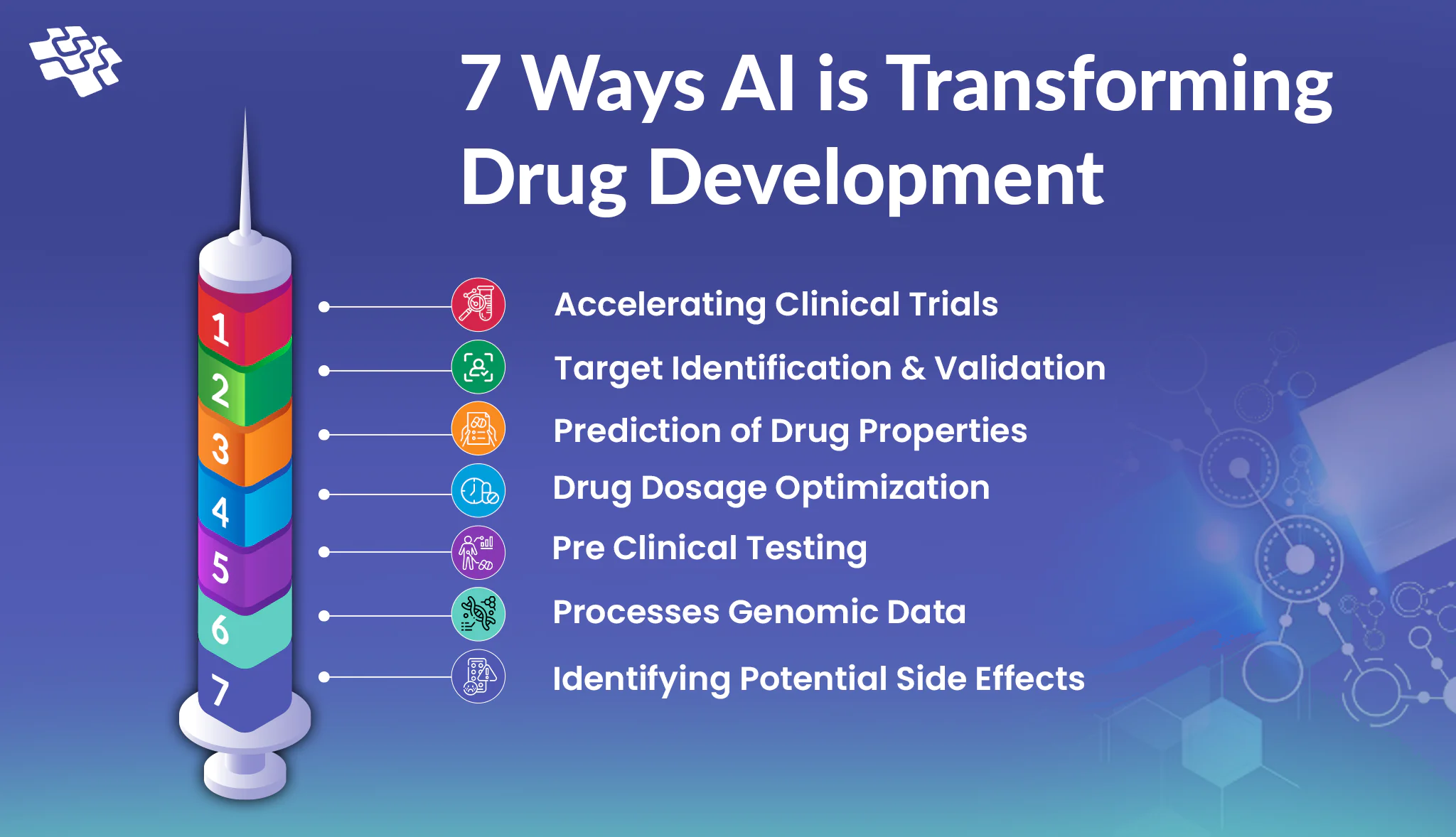
How AI in Drug Development is Transforming the Industry?
When trying to make an appointment for a medical visit, have you ever found that you have to wait weeks for the next open time slot? Everyone has experienced that. Mobile apps, however, have completely changed how we make appointments...
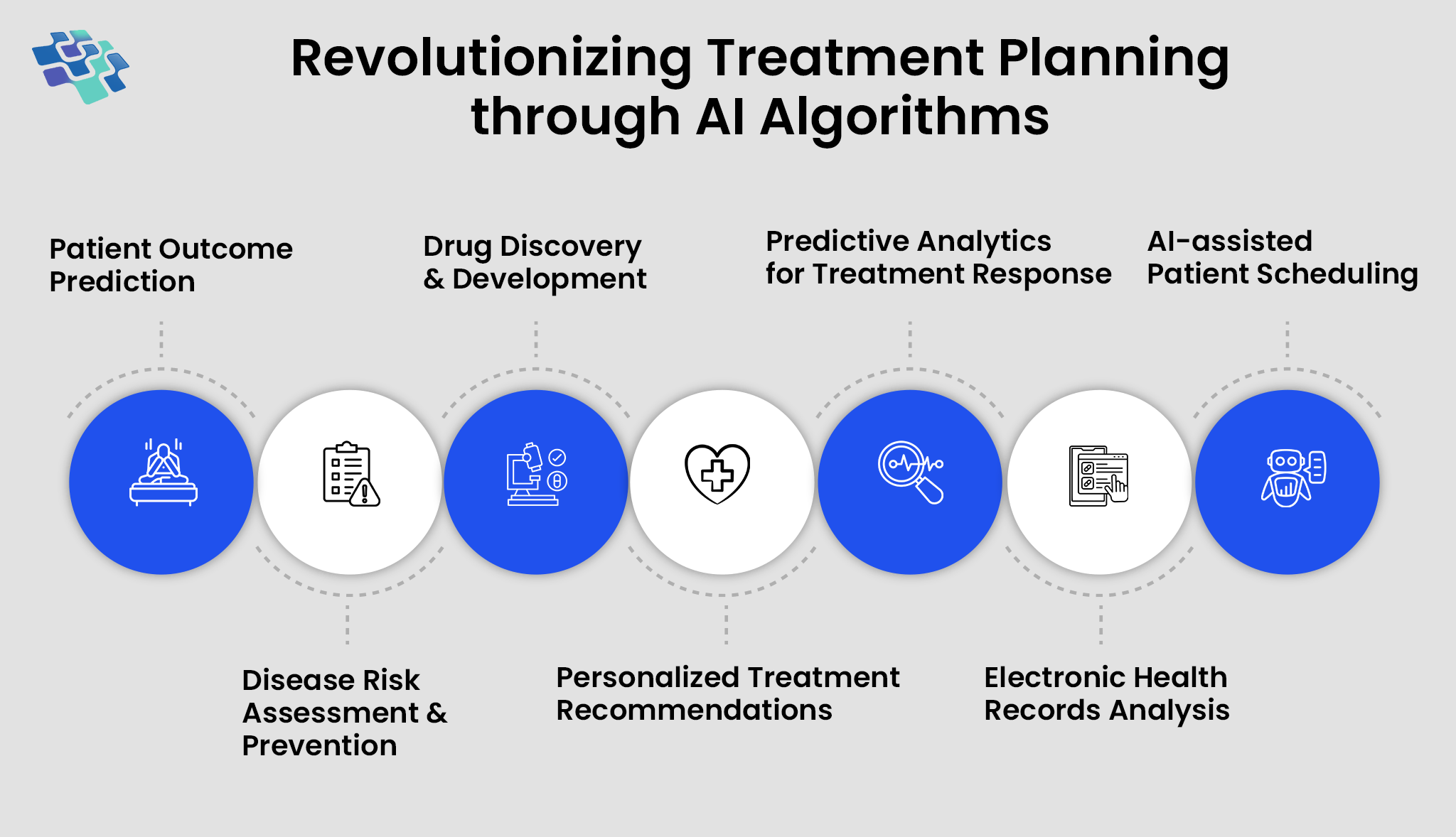
The Role of AI in Personalized Healthcare
What the American Medical Association refers to as AI’s “augmented intelligence” role is improving healthcare through better diagnostics, tailored medication, patient involvement, and dismantling data silos to transform patient care...
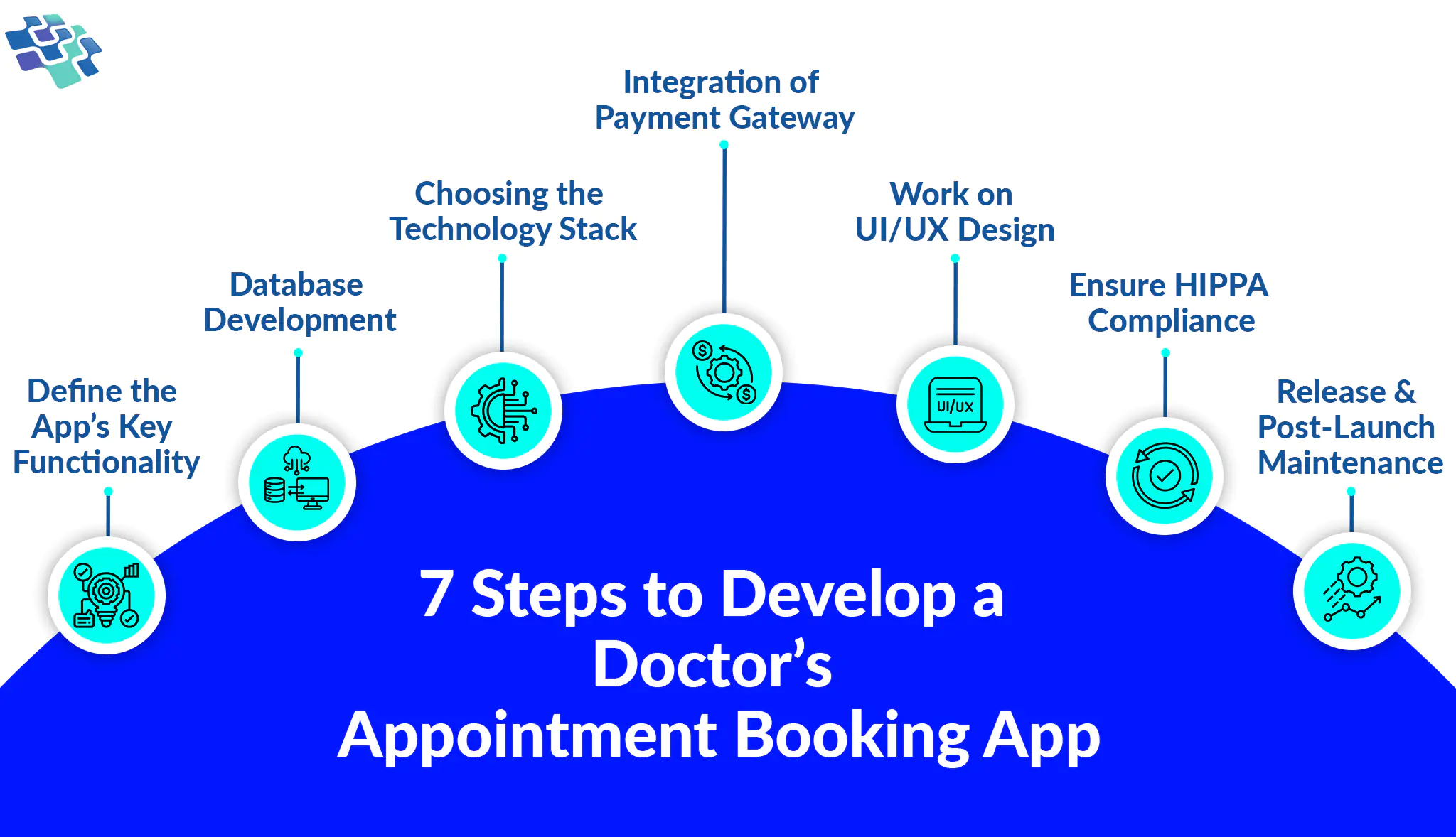
How to Develop a Doctor Appointment App in 2024?
By the end of 2024, the US market for online medical consultations is projected to generate $5.06 billion in revenue. From 2024 to 2028, this is anticipated to expand at a 4.44% annual pace, with a market size of $6.02 billion.
Stay In the Know
Get Latest updates and industry insights every month.
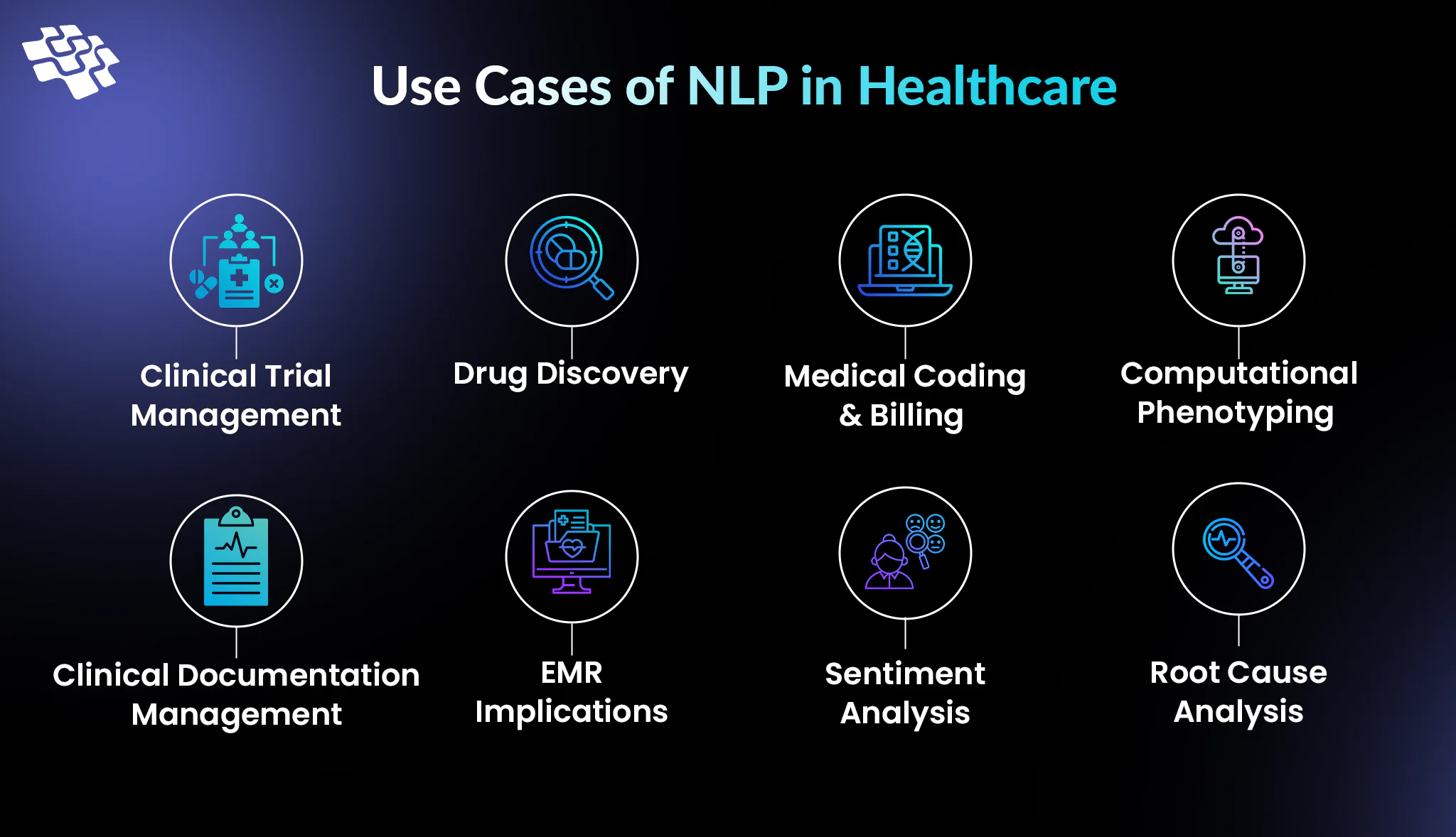 1. Clinical Trial Management
1. Clinical Trial Management